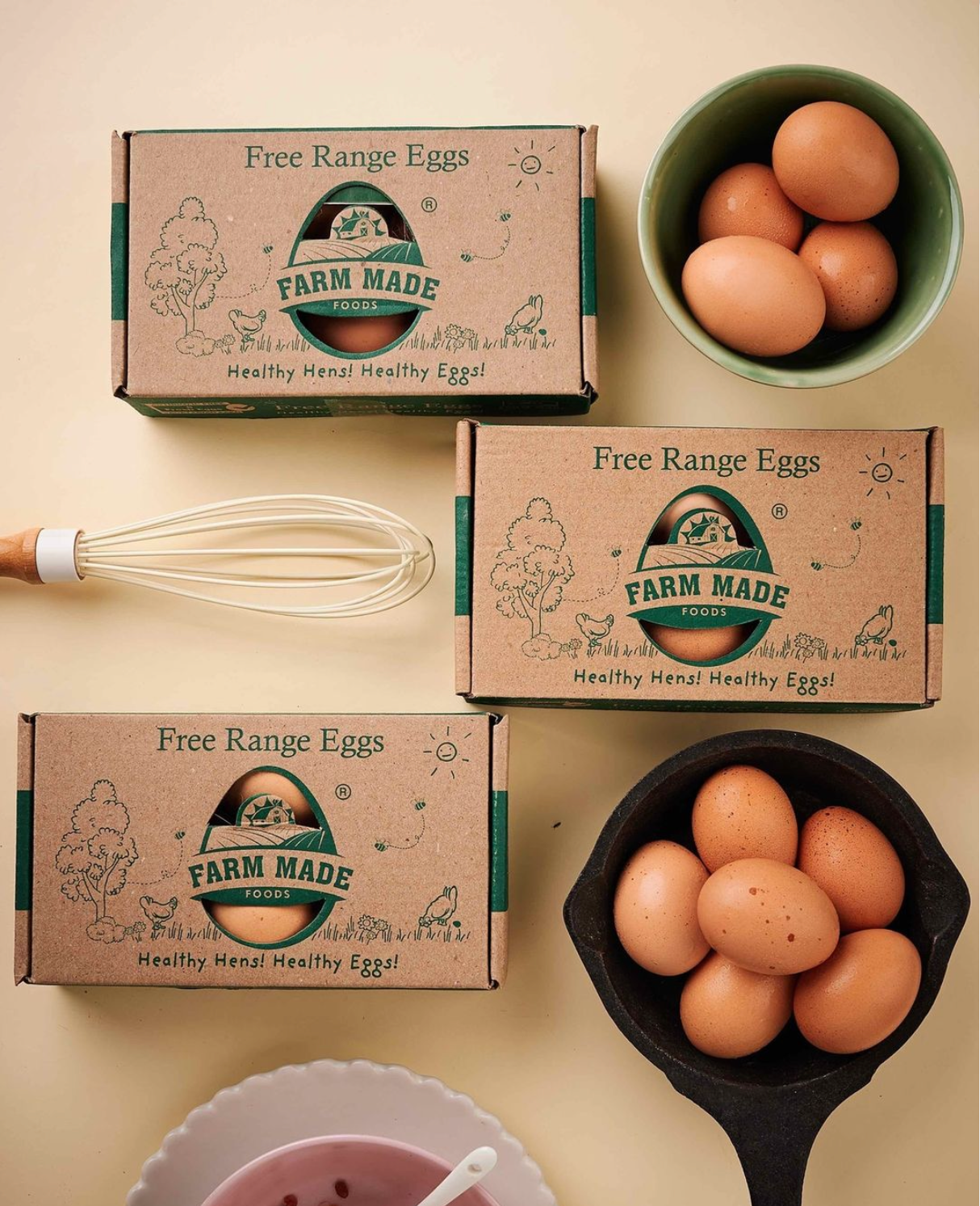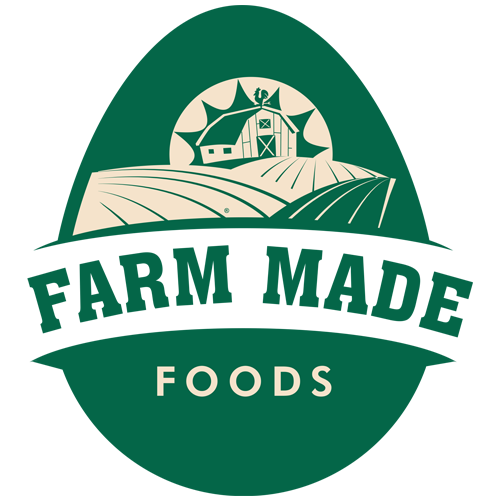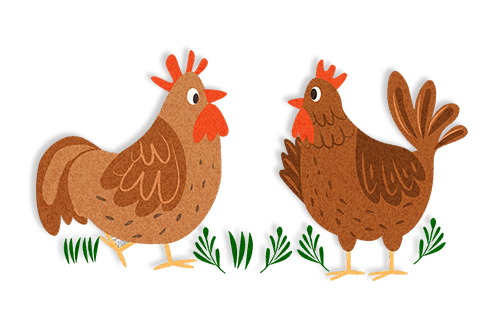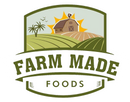

What Should I Look for When Buying Eggs: Everything You Need to Know
Eggs are one of the most versatile and affordable protein sources, but choosing the right carton at the store can feel surprisingly complicated. Words like cage-free eggs, free-range eggs, organic eggs, or pasture-raised eggs often appear on egg carton labels, leaving many people wondering what they really mean. Add factors like egg yolk colours, freshness, and different types of eggs, and it’s easy to see why buying eggs can be confusing.
This guide explains everything you need to know about how to choose eggs - from understanding farming practices to knowing what to look for in the store.
Types of Eggs You’ll See in Stores
When you’re buying eggs, you’ll usually come across several categories:
- White eggs: The most common type, laid by hens with white feathers. Their nutritional value is the same as brown eggs; the colour difference comes from the hen’s breed.
- Cage-free eggs: From hens that aren’t kept in cages but live indoors in barns.
- Free-range eggs: From hens that are allowed to roam freely in stress-free environments, which allows natural behaviours like foraging, pecking, dust-bathing, and sun-bathing.
- Pasture-raised eggs: These hens spend much of their lives outdoors with more space per bird than typical free-range systems.
- Organic eggs: Produced from hens given organic feed and raised without synthetic pesticides or antibiotics.
- Pasteurized eggs: Heat-treated to kill bacteria, making them safer for recipes with raw eggs like mayonnaise or mousse.
Understanding these types of eggs is the first step in choosing what’s right for your needs.
Do Egg Carton Labels Really Matter?
Yes - egg carton labels provide important information, but not all terms are regulated. Words like “natural” or “farm fresh” may sound appealing but often have no strict definition. Labels such as cage-free eggs and free-range eggs carry more weight because they describe the conditions under which the hens were raised.
If animal welfare, nutrition, or sustainability matters to you, it’s worth learning how to decode these labels.
Egg Yolk Colours: Do They Indicate Nutrition?
One of the most common questions when buying eggs is about yolk colour. Darker, golden yolks are often assumed to be healthier, but that’s not always true. The egg yolk colours come from the hen’s diet, not the shell colour or the farming system.
For example, hens that eat more carotenoid-rich plants like corn or marigold petals produce darker yolks. While a vibrant yolk can indicate a varied diet, nutrition levels between lighter and darker yolks are generally similar.
Free-Range Eggs Benefits
The benefits of free-range eggs stand out for many consumers. Since the hens have outdoor access and more natural diets, their eggs taste fresher and richer. Many people also prefer them for ethical reasons, as free-range systems support animal welfare.
How to Choose Eggs at the Store
When you’re not sure how to choose eggs, here are a few practical tips:
- Check the carton date: Look for the “best before” or “packed on” date to ensure freshness.
- Inspect the eggs: Open the carton to check for cracks or dirt.
-
Check for certifications: Look for verified stamps such as certified free-range or certified humane on the carton. These third-party certifications ensure the claims are backed by actual standards and inspections.
Why Freshness Matters
Even the best types of eggs lose quality over time. Old eggs tend to have runnier whites and weaker yolks, which can affect cooking results. To test at home, place an egg in a bowl of water. Fresh eggs sink, while older ones float.
FAQs for Eggs Buying Guide
Do egg carton labels like cage-free, free-range, and natural really matter?
Yes, they do. Labels such as cage-free eggs and free-range eggs describe the environment hens live in, which can impact welfare and sometimes egg quality. “Natural” has no strict definition, so focus on regulated terms or certifications for a more accurate picture of what you’re buying.
Do larger eggs mean better quality?
Not necessarily. Larger eggs don’t mean better nutrition - they just contain more of the same nutrients. For recipes like baking, larger eggs are often preferred because they provide the right volume. For everyday eating, both medium and large eggs are equally nutritious.
Which eggs are best for making cakes, custards, or sauces?
For baking and custards, large eggs are the standard because recipes are usually written with that size in mind.
Does the yolk colour indicate better quality or nutrition?
Egg yolk colours depend mainly on the hen’s diet. Darker yolks can reflect carotenoid-rich feed, while lighter yolks don’t necessarily mean lower quality. Nutritional differences between yolks of different shades are usually minimal, so colour of the yolk alone isn’t a reliable measure of nutrition.
How can I avoid buying stale or old eggs?
Check the date printed on the egg carton labels and choose the freshest pack available. Inspect the eggs for cracks and dirt. At home, do the water test - fresh eggs sink, while older eggs float. Proper storage also helps maintain freshness longer.


